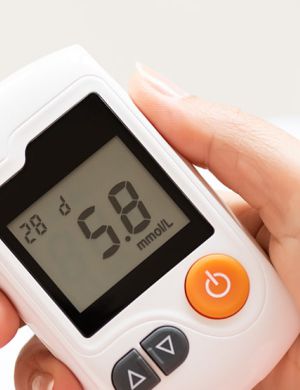
The Impact of AI on Medical Device Technology and Certification
Currently, AI refers to the ability of machines to perform cognitive tasks commonly associated with human intelligence including perception, learning, reasoning, planning, speech and language, and taking actions. In particular, AI also includes tasks of robotics, i.e., the ability to move and manipulate objects and autonomous orientation and motion.
Notable medical devices utilizing embedded machine learning functions are:
Diagnostic imaging devices: Machine learning algorithms can be used to improve the accuracy of imaging devices like MRI [Magnetic Resonance imaging] machines, CT [Computed Tomography] scanners, and X-ray machines. For instance, ML algorithms can be used to automatically identify and analyze abnormalities in medical images. Common signs of such abnormalities are tumors and lesions.
Certified Wearable health monitors: Wearable health monitors (e.g., fitness trackers) can act as medical devices following proper certification, They typically use machine learning algorithms to track and analyze health data, such as heart rate, sleep patterns, and activity levels. These devices can provide insights into an individual’s health status and help to identify potential health risks.
Clinical decision support systems: Machine learning algorithms are commonly used as part of clinical decision support systems that help healthcare providers make more accurate and informed treatment decisions. For example, ML algorithms can be used to analyze patient data and provide treatment recommendations based on that data.
Medical robots: Medical robots incorporate ML algorithms to improve their ability to perform surgical procedures and other medical tasks. By means of selected machine learning algorithms they can be used to improve the accuracy and precision of robotic surgical systems.
Drug delivery devices: ML algorithms are also used to optimize drug delivery devices, such as insulin pumps or implantable drug delivery systems. For instance, ML modals can be used to analyze patient data and adjust drug dosages.
Latest Guidance for AI in Medical Devices technology and certification:
- A management system standard in the vein of ISO 9001, ISO 13485 and ISO/IEC 27001, ISO/IEC 42001:2023 guides organisations creating or using AI towards good practices and also allows for certification by a certification body of an organisation’s AI Management System. ISO/IEC 42001 is structured to allow easier integration with other ISO Management System Standards into an Integrated Management System making it a sensible addition for AIaMD or SaMD manufacturers when developing their management system.
- The major AI-related development in the EU is the progression of the EU AI Act towards implementation after it was approved in March 2024.
- The FDA AI/ML-Based Software as a Medical Device Action Plan was released three years ago and includes an overview of their approach to Total Product Lifecycle for AI/ML medical devices.
Applications of Generative AI in the Healthcare Industry
The use of generative AI has a wide range of applications in the Healthcare industry:
- Automating administrative tasks: Healthcare administrative tasks play a vital role in managing healthcare processes, ensuring adherence to regulations, and enhancing overall administrative efficiency.
- Medical imaging: Medical imaging technologies are instrumental in providing visual depictions of the internal structures of the human body, which are then utilized for clinical examination and medical intervention. These technologies play a crucial role in the recognition, tracking, and management of various medical ailments.
- Drug discovery and development: It encompasses a multi-stage process involving scientific research, experimentation, and testing to bring new drugs from the initial idea to market availability.
- Medical research and data analysis: Medical research and data analysis involve systematically investigating and examining health-related topics to advance scientific knowledge and improve patient outcomes.
- Risk prediction of pandemic preparedness: A pandemic is an epidemic that has swept across a vast geographical area, affecting several countries or continents as well as a sizeable portion of the population.
- Generating synthetic medical data: Artificially generated healthcare information that mimics real patient data but is entirely fictional and unrelated to actual individuals.
- Personalized medicine: Medical decisions and practices are customized to suit each patient’s specific needs.
Serious challenges of using AI:
To ensure that manufacturers’ AI models comply with existing legislation, AI guidance must address serious challenges and caveats. These include:
1. Ethics in data collection:
Using artificial intelligence to handle sensitive medical data raises privacy and security concerns. AI may also undermine individuals’ autonomy and dehumanize patient care.
When automating personal data, manufacturers must comply with the General Data Protection Regulation (GDPR) in Europe and provide meaningful information about the logic involved in any automated decision taken by an AI algorithm.
The power granted to AI in the medical field could translate to life-threatening decisions, such as incorrect diagnosis, treatment, and intervention options, among many others. The principle of autonomy requires that AI does not undermine human autonomy. This means that individuals must retain control over their medical decisions and actions in healthcare systems.
2. Cyber security threats
The integration of AI in pharma and medical devices raises concerns about the vulnerability of devices to cyberattacks. Privacy breaches can have serious financial and legal consequences.
Companies and healthcare providers must take steps to protect this data and ensure that it is secure. They must ensure that they have strong security measures in place and that their staffs are properly trained to handle this data. They must also guarantee that patient information is kept secure and confidential. Their systems must be regularly monitored and patched to make certain that any vulnerability is addressed quickly.
3. Lack of transparency
Many AI algorithms operate as black boxes, making it difficult to understand how they come to their conclusions. In the absence of transparency, patients and healthcare professionals are left in the dark about trust, accountability, and the ability to explain medical decisions.
4. Risk of bias
The quality, distribution, and integrity of input data determine the output of AI algorithms. In this sense, it determines how well a device performs. As a result, it is essential to identify and address any biases that may be present within the input data to ensure safe and effective AI applications.
5. Potential for misuse
Using medical AI tools incorrectly can lead to wrong medical assessments and decision-making, which could result in harm to patients. Several factors can contribute to this misuse, such as the limited involvement of clinicians and patients in the development of AI, a lack of training in medical AI among healthcare professionals, and the proliferation of easily accessible online and mobile AI solutions without sufficient explanation and information.
6. Regulatory framework and standards
Advances in AI are outpacing regulations. To adapt existing regulations to AI innovations, regulatory authorities should develop clear guidelines and collaborate with stakeholders in the industry.
Advancements in artificial intelligence are ushering in a new era of medical device technology, marked by greater precision, personalized therapies, and smarter equipment. However, these developments provide new concerns, particularly in terms of regulation, data privacy, and ethics. Looking ahead, regulators, manufacturers, and healthcare providers must work together to build strong frameworks that ensure the safety, efficacy, and ethical usage of AI-powered medical devices. By proactively tackling these problems, we can maximize AI’s potential to improve patient care and transform healthcare delivery.
Don’t miss out! Click here to stay in touch.
Categories
- Biopharma (47)
- Consumer Health (15)
- Cosmetics (8)
- Diagnostics (5)
- Digital Health (8)
- Food (2)
- Medical Device (100)
- OTC (3)
- Regulatory Intelligence (5)
- Standards (41)
Recent Blogs
Get the latest updates from Vistaar

Related Posts
CONNECT WITH US

Let's talk about how DDi can help you







